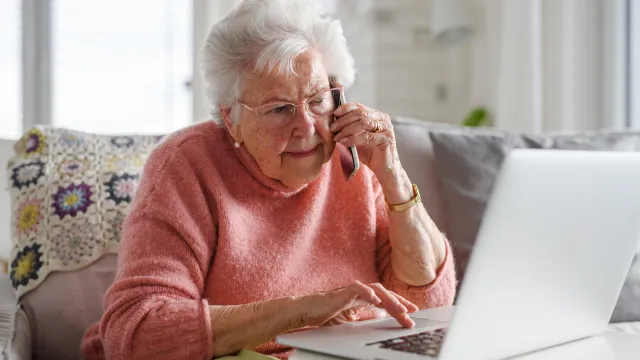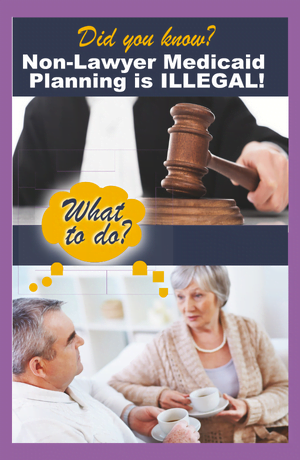Clarity for Life’s Toughest Moments. Compassion You Can Trust.
Health Care Directives & POA to Protect Your Wishes and Empower Your Voice
Medical emergencies do not come with a warning. With Health Care Directives and a Power of Attorney (POA), you can choose who speaks for you and how care decisions are made—before a crisis ever happens. At Amy Dow Elder Law, we help Florida families create clear, legally sound documents that reflect your values, protect your dignity, and ease the burden on loved ones.
When You Cannot Speak for Yourself, Who Will?
Without Health Care Directives or POA, Uncertainty Replaces Clarity
In a moment of crisis, medical teams may not know your wishes—and loved ones may not have the legal authority to help. Without proper Health Care Directives or a Power of Attorney (POA) in place, critical decisions about your care, treatments, and even life support could be made by strangers or delayed altogether. The result? Confusion, conflict, and avoidable heartache.
According to the National Library of Medicine, only one in three U.S. adults has an advance directive in place—even though nearly 75% of people say they would want family involved in medical decisions if they could not speak for themselves.
At Amy Dow Elder Law, we believe your voice should never be lost in the system. With the right legal tools, you stay in control—even when you cannot speak.
During a very difficult time navigating high medical expenses for a loved one, Amy was a true source of guidance and support. Her deep knowledge, steady presence, and compassionate approach made all the difference. She was always available, incredibly patient, and walked me through every detail with care. Thanks to her, I felt peace of mind in a situation that could have been overwhelming. Her legal expertise was not just helpful—it was priceless.
Why Every Family Deserves a Voice—Even in Crisis
Health Care Directives & POA Provide Clarity, Control, and Comfort
When faced with a medical emergency or end-of-life situation, having Health Care Directives and a Power of Attorney (POA) in place protects more than just legal rights—it protects peace of mind. These documents ensure that your wishes are clearly known and that the right person is legally empowered to carry them out.
Whether you are a married couple planning ahead or an adult child caring for a parent, these tools reduce confusion, prevent delays in treatment, and help avoid painful disagreements. Most importantly, they allow families to focus on care—not paperwork—during moments that matter most.
At Amy Dow Elder Law, we help you craft personalized directives that honor your beliefs, support your loved ones, and give you control over your future care—no matter what happens.
It is never too early—or too late—to put your wishes in writing.
What is Included in a Legally Sound Health Care Directives & POA Plan?
Your Wishes. Your Voice. Your Legal Protection—All in One Place.
Planning ahead is not just about filling out paperwork—it is about making sure your wishes are honored and your family is protected when it matters most. Health Care Directives and a Power of Attorney (POA) form the foundation of that plan. These documents help avoid medical confusion, prevent legal delays, and remove uncertainty from emotionally difficult situations. According to the National Institute on Aging, having these documents in place ensures your preferences are respected—even if you are unable to voice them.
Each directive we prepare is tailored to Florida’s legal standards and your personal values. We explain everything in plain language, walk you through your options, and make sure the people you trust are empowered to speak for you when you cannot. Whether you are preparing for the future or supporting a loved one through illness, we are here to help you plan with confidence. You can also view the official Health Care Advance Directives guide provided by the Palm Beach Health Department to better understand what this process involves.
Speak for Yourself—Even If You Cannot
We help you create a clear and legally binding Advance Directive that outlines your preferences for treatment, life support, pain management, and end-of-life care. Your decisions are honored—even in the most unexpected moments—because they are documented, accessible, and protected under Florida law.
Choose Who Makes Medical Decisions for You
Our firm drafts customized Medical Power of Attorney (POA) documents that legally authorize someone you trust to speak on your behalf. Whether it is a spouse, adult child, or close friend, your chosen agent will have the authority to work with doctors, access records, and carry out your wishes with clarity and legal backing.
Stay Compliant. Stay Protected. Stay in Control
We ensure your documents follow Florida’s legal standards and reflect your personal values. From HIPAA authorizations to surrogate designations, we handle all forms and filings with care—so you never have to second-guess whether your plan will hold up in a crisis.
Real Families. Real Peace of Mind.
Because when it comes to your voice and your care, clarity is not optional—it is essential.
When life feels uncertain, families across Florida turn to Amy Dow Elder Law for more than just legal documents—they come for guidance, kindness, and lasting peace of mind. Whether they are planning ahead or responding to a medical emergency, our clients know they are not facing it alone. Their stories say it better than we ever could.
Who We Help — Health Care Directives with Heart
Compassionate Legal Planning for Every Stage of Life and Family Dynamic
Health Care Directives and Power of Attorney documents are not just for seniors—they are for anyone who wants peace of mind in uncertain moments. At Amy Dow Elder Law, we help people from all walks of life make sure their wishes are known, respected, and protected. Whether you are planning ahead, responding to a health scare, or helping someone you love, we guide you with compassion, dignity, and clarity.
Below are four groups we commonly serve—each with unique needs and emotional realities.
Adult Children Navigating a Health Crisis
Step In With Confidence When It Matters Most
When a parent faces a medical emergency, adult children are often left making critical decisions without legal authority. We help you create the right Power of Attorney and directive documents—so you are ready to advocate, access medical records, and ensure your loved one’s wishes are honored. You do not have to figure it out alone.
Married Couples Planning Ahead
Protect Each Other With Clarity and Care
Even the closest couples do not automatically have legal rights in a health crisis. We help spouses authorize each other through proper POA and health care directive documents—so there is no confusion, no red tape, and no delay in getting the care and advocacy you deserve.
Solo Adults Without Family
You May Be Alone—But You Are Not Unprotected
If you live alone or do not have close family nearby, naming a trusted friend or surrogate can bring peace of mind. We help solo adults create legally valid documents that ensure your health care preferences are followed—no matter the situation.
Parents of College-Age or Young Adult Children
Empower Your Children—and Protect Their Future
Once a child turns 18, parents lose the automatic right to access medical information or make decisions. We help families put legal tools in place so that if something unexpected happens—a car accident, hospitalization, or emergency—you can step in with love and legal authority.
What to Expect When Creating Health Care Directives & POA
Step-by-step guidance from your first conversation to complete peace of mind
Putting a plan in place does not have to be overwhelming. At Amy Dow Elder Law, we walk you through every step—calmly, clearly, and with deep respect for your needs. Whether you are protecting a loved one or preparing for your own future, here is what you can expect from start to finish.

Start With a Real Conversation
It all begins with a simple, compassionate call. We take the time to understand your situation, answer questions in plain English, and explore who should be named in your legal documents. You will never be rushed, pressured, or left in the dark.
Clarify Your Wishes & Values
We help you identify what matters most—who should speak for you, what care you want or do not want, and how you want to be treated if you cannot speak for yourself. Your preferences are documented clearly and legally. Learn more about how advance directives protect your care.
Draft & Finalize the Right Documents
We prepare custom Health Care Directives and Power of Attorney documents that reflect Florida law and your personal beliefs. Every form is explained in plain English—so you feel confident and in control.
Make It Official — With Clarity
We make sure everything is signed, notarized, and stored properly. You will also receive guidance on who needs a copy—from family members to doctors—so your plan works exactly as intended.

Rest Easier Knowing You’re Protected
Once your plan is complete, your wishes are protected—and your loved ones are relieved of the guesswork. You will have peace of mind knowing everything is legally sound and compassionately prepared.
According to the National Institute on Aging, less than 1 in 3 U.S. adults have an advance directive in place. Starting now puts you ahead of the curve—and in control of your care.
Have questions about what to prepare or where to begin?
We will walk you through every detail—at your pace, in your words, and with zero pressure.
Common Questions, Clear Answers
Florida Health Care Directives & POA FAQs for Peace of Mind
If you are creating advance directives for yourself or a loved one in Florida, chances are you have questions—and that is completely normal. At Amy Dow Elder Law, we meet you where you are. Below are some of the most frequent questions Florida families ask when navigating Health Care Directives, Medical Power of Attorney, DNRs, and surrogate decision-making.
Our answers are designed to give you calm, confidence, and legal clarity—so you can plan with peace of mind and protect those you love.
What is the most common health care directive?
The most common health care directive in the United States is the Advance Directive for Health Care, also known as a Living Will.
This document allows you to outline your wishes for medical treatment in situations where you are unable to communicate for yourself—such as during a coma, stroke, or late-stage illness. It often includes preferences around life-sustaining measures like:
-
Mechanical ventilation
-
Artificial nutrition or hydration
-
Resuscitation (CPR)
-
End-of-life comfort care
In Florida, a Living Will is legally recognized under Chapter 765 of the Florida Statutes, which covers Health Care Advance Directives and the legal right to accept or refuse medical treatment.
Many Living Wills are paired with a Designation of Health Care Surrogate (a type of medical Power of Attorney), which names a trusted person to make decisions on your behalf if you cannot.
According to the National Institutes of Health, more than two-thirds of older adults in the U.S. have some form of advance directive—yet many are incomplete or outdated, which can lead to confusion during a crisis.
💡 Pro Tip: The most effective directive is one that’s clear, legally valid, and shared with your loved ones and medical providers.
What is a medical directive example?
A medical directive—also called a health care directive or advance directive—is a legal document that outlines how you want medical decisions handled if you cannot speak for yourself.
📝 Example:
Imagine a Florida resident named Janet suffers a stroke and becomes unconscious. She previously completed a Living Will, which states:
“If I have a terminal condition or am in a persistent vegetative state with no reasonable chance of recovery, I do not want to be placed on a ventilator or have artificial nutrition administered. I want comfort care only.”
Because this directive is legally valid and already on file with her doctors and family, her wishes are honored—avoiding unnecessary intervention and family conflict.
💡 Other Common Medical Directive Examples Include:
- Living Will: Outlines the type of treatment you do or do not want (e.g., no feeding tubes, no CPR, etc.)
- Designation of Health Care Surrogate (Florida): Names someone you trust to make medical decisions on your behalf
(Florida Health Care Surrogate Form – FL Health Dept.) - Do Not Resuscitate (DNR): A form that tells medical staff not to perform CPR if your heart or breathing stops
(CDC Advance Care Planning Resource)
🛑 Without a directive, loved ones may be forced to guess what you would want—or worse, decisions could be delayed or made by the wrong person.
Planning ahead means your care reflects your values—and your voice is still heard, even if you cannot speak.
What is the difference between a DNR and a health care directive?
While both documents guide medical care when you cannot speak for yourself, a DNR and a health care directive serve different—and equally important—purposes.
🟣 DNR (Do Not Resuscitate) Order:
A DNR tells medical professionals not to perform CPR (cardiopulmonary resuscitation) if your heart stops or you stop breathing. In Florida, it must be printed on yellow paper and signed by a physician to be valid in emergency settings.
-
Very specific: applies only to CPR
-
Used in hospitals, nursing homes, or at home with first responders
-
Often part of late-stage or hospice care plans
📄 See the official Florida DNR form (DOH-1896)
🟣 Health Care Directive (Advance Directive):
A health care directive is broader. It may include a Living Will and a Designation of Health Care Surrogate, outlining:
-
The types of life-sustaining treatment you want or do not want (e.g., ventilator, feeding tube, dialysis)
-
Who can make medical decisions for you if you are incapacitated
-
Your preferences around comfort care and end-of-life support
📘 Learn more from the Florida Bar’s Advance Directives guide
✅ In Summary:
| DNR | Health Care Directive | |
|---|---|---|
| Purpose | Refuses CPR only | Covers all types of medical care and decisions |
| Who signs it | Patient + physician | Patient only (no doctor needed for most forms) |
| Scope | Emergency use only | Used across all care settings (hospitals, rehab, etc.) |
| Florida requirement | Must be on yellow paper | Can be on standard legal forms |
💡 Best Practice: Many people have both. A health care directive protects your overall wishes, while a DNR adds a specific instruction in emergency scenarios.
Can a medical power of attorney override a DNR?
In most cases, no—a valid Do Not Resuscitate (DNR) order cannot be overridden, even by someone holding a Medical Power of Attorney (POA)—also called a Health Care Surrogate in Florida.
🟣 Here’s Why:
A DNR is a physician-signed medical order, not just a personal preference. Once it’s activated and visible to emergency responders (especially in Florida, where it must be printed on yellow paper), it becomes a binding directive for first responders and hospital staff.
Even if your medical POA disagrees or tries to reverse it during an emergency, healthcare providers are required to follow the DNR if it meets legal standards.
📄 Official Florida DNR Form (DOH-1896)
🟣 However, There’s One Important Exception:
If the patient is still conscious and mentally capable, they can verbally revoke the DNR—even in the presence of a health care surrogate or POA.
And if the DNR was created in the past but is no longer desired, your POA can help revoke or update the document before a medical crisis occurs by:
-
Speaking directly with the attending physician
-
Helping complete and sign a new advance directive or DNR revocation
-
Removing the yellow DNR form from visibility in the home or medical chart
✅ Best Practice: Your medical Power of Attorney should be aligned with your DNR, Living Will, and all other advance directives. Consistency ensures your wishes are followed without confusion or legal conflict.
🧾 Learn more about DNR enforcement rules from the Florida Department of Health
Does a power of attorney override an advance directive?
No—a Power of Attorney (POA) does not override an Advance Directive.
Instead, they work together as part of a complete health care planning strategy.
🟣 How They Work Together:
-
An Advance Directive—such as a Living Will—lays out your specific medical wishes, including preferences for life support, feeding tubes, resuscitation, and comfort care.
-
A Medical Power of Attorney (POA)—or Health Care Surrogate in Florida—names someone to speak on your behalf and make decisions based on those wishes if you cannot communicate.
Your POA’s role is to honor your Advance Directive, not override it.
✅ Example:
Let’s say your Living Will states:
“I do not want to be kept alive by artificial ventilation if I am in a persistent vegetative state with no chance of recovery.”
If you become incapacitated, your POA cannot legally demand ventilation, even if they emotionally disagree. Medical staff are bound to follow your documented preferences, not your agent’s opinions.
⚖️ Florida Law Is Clear:
Under Florida Statute 765.104, an advance directive takes effect as soon as a person becomes incapacitated, and the designated surrogate or POA is expected to carry out the patient’s wishes—not replace them.
💡 Tip: Keep all documents—your Living Will, POA, and any DNR orders—updated and consistent. Conflicting documents can lead to delays, confusion, and legal challenges in a crisis.
🧾 Learn more from the Florida Bar’s Guide to Advance Directives
What is the difference between a POA and a Health Care Proxy?
A Power of Attorney (POA) and a Health Care Proxy are often used interchangeably—but there are important legal distinctions, especially depending on what state you live in.
In Florida, the legal term for a health care decision-maker is a Designation of Health Care Surrogate, which functions like a Medical Power of Attorney.
🟣 Key Differences at a Glance:
| Medical POA / Health Care Surrogate | Health Care Proxy | |
|---|---|---|
| Who chooses them | You choose and legally appoint them in writing | Appointed by medical staff if you did not name someone |
| Legal authority | Full legal decision-making power for medical situations | Limited and used only when no advance directive exists |
| When activated | When you are deemed incapacitated (by 1–2 physicians) | When no surrogate or POA is documented |
| Recognized in FL | ✅ Yes — Florida law uses the term Health Care Surrogate | ❌ “Proxy” is not a preferred legal designation in Florida |
📘 Read Florida’s official Health Care Surrogate statute here
🧠 Real-Life Example:
-
If you’ve signed a Designation of Health Care Surrogate (Medical POA):
The person you named can speak to doctors, approve or deny treatments, and access medical records if you become unable to make decisions. -
If you haven’t named anyone in writing:
Florida law allows a physician or hospital ethics committee to appoint a Health Care Proxy—often a spouse, adult child, or close friend—but their authority is limited and may not align with your wishes.
✅ Bottom line:
A Medical POA (or Health Care Surrogate in Florida) gives you control. A Health Care Proxy is a backup decided for you—often in a crisis.
🧾 Learn more from The National Institute on Aging – Advance Care Planning Overview
Still have questions about advance directives in Florida?
You are not alone—and you do not have to figure it out by yourself.
Whether you are planning ahead or facing a sudden care crisis, we are here to walk you through every decision—at your pace, in your words, and with zero pressure.
You Deserve Support That Sees the Whole Picture
Let’s Talk About What Peace of Mind Looks Like for You
At Amy Dow Elder Law, we understand that every health care decision carries emotional weight—especially when the future feels uncertain. Whether you are preparing documents for a loved one or protecting your own wishes, we walk with you step-by-step, offering legal clarity and personal compassion every step of the way.
Let us help you move forward with confidence, not confusion. One conversation can make all the difference.
Office Number: (561) 288-1750
Your message is 100% confidential.
Trusted Guidance From the Florida Bar
Download the Elder Law Booklet Amy Dow Helped Write
Amy Dow, a respected Elder Law Lawyer and co-author of this official Florida Bar guide, brings you vital insights into Medicaid planning, asset protection, and elder law strategies. This free resource gives you the knowledge to protect your loved ones — and avoid costly mistakes.






